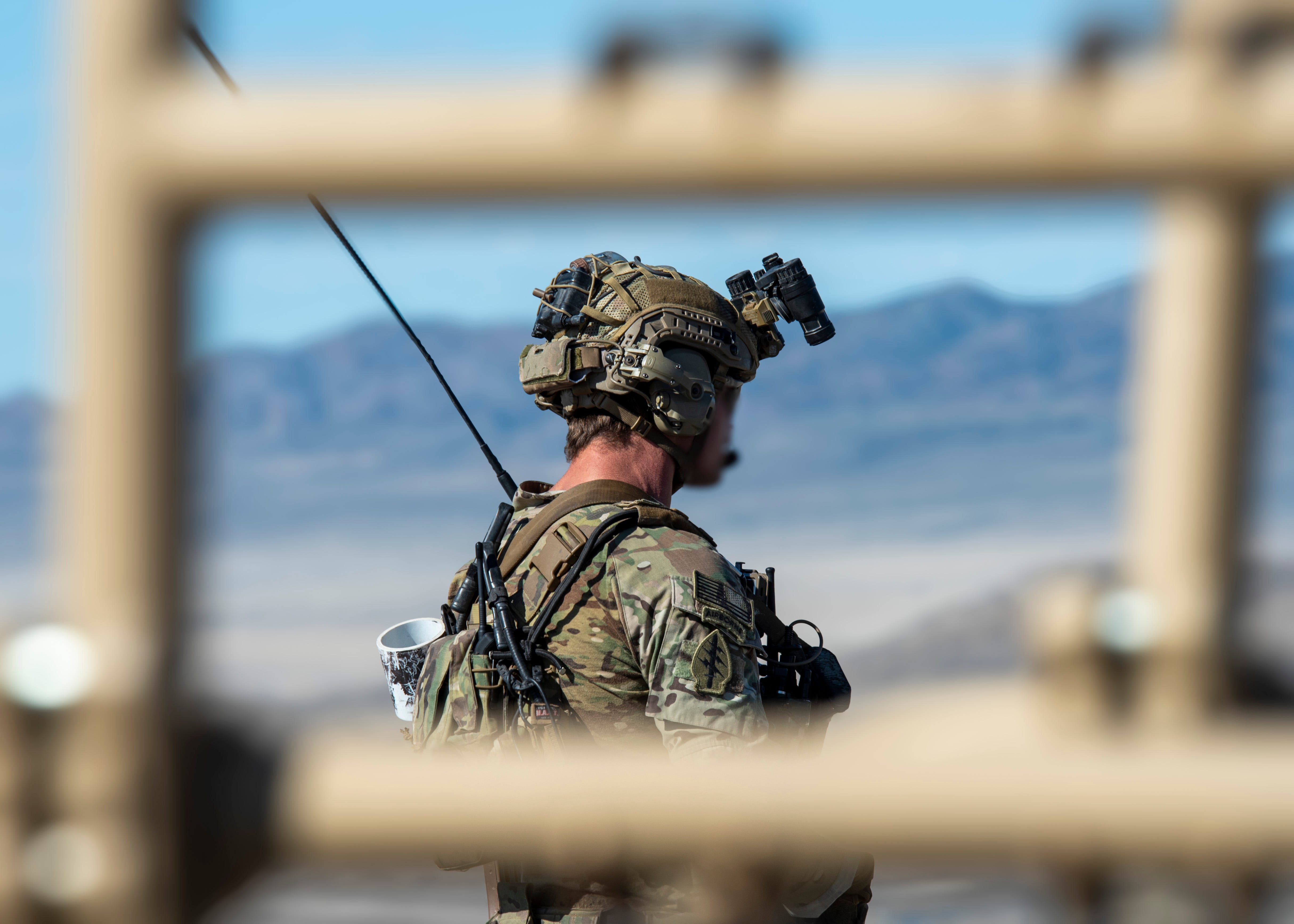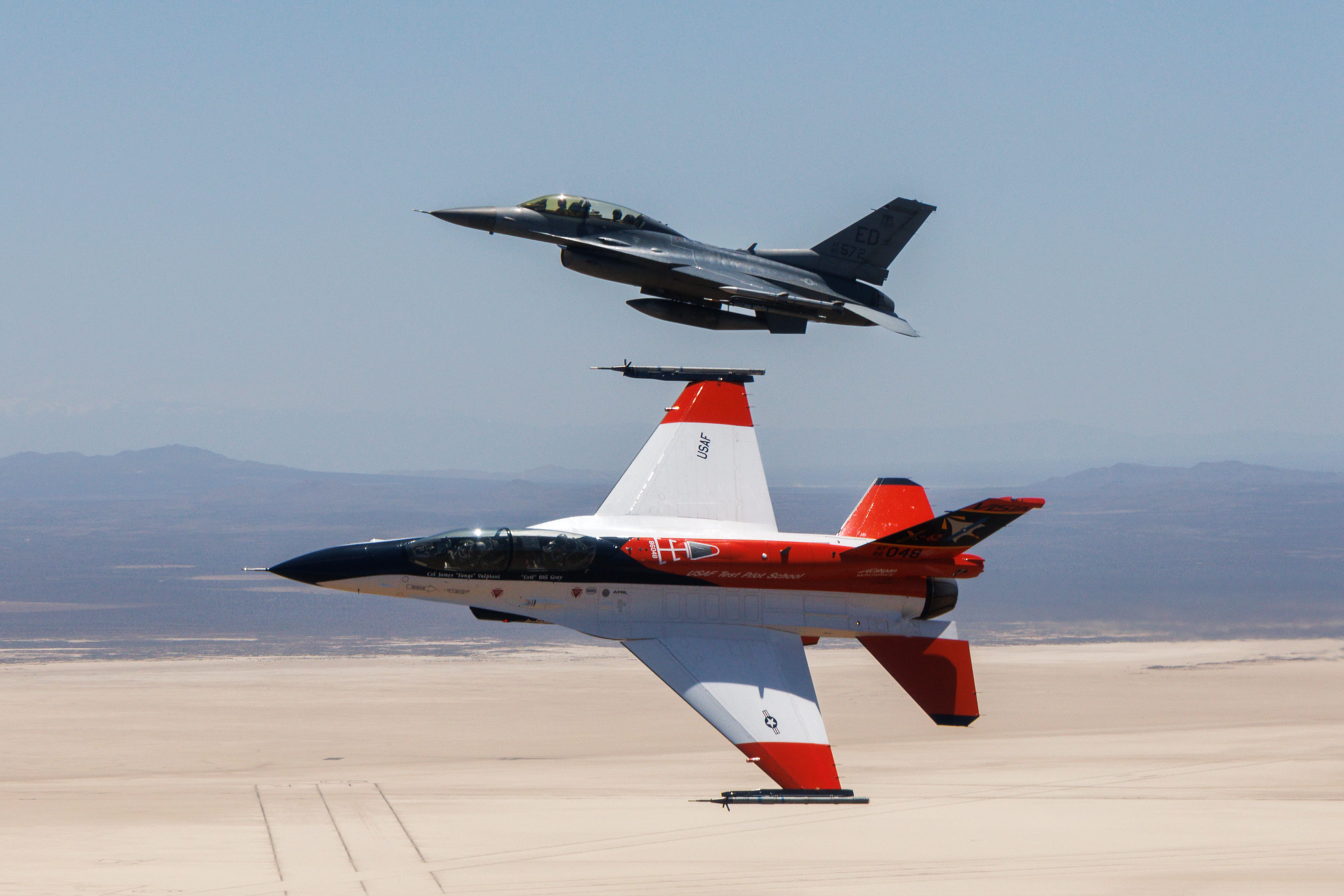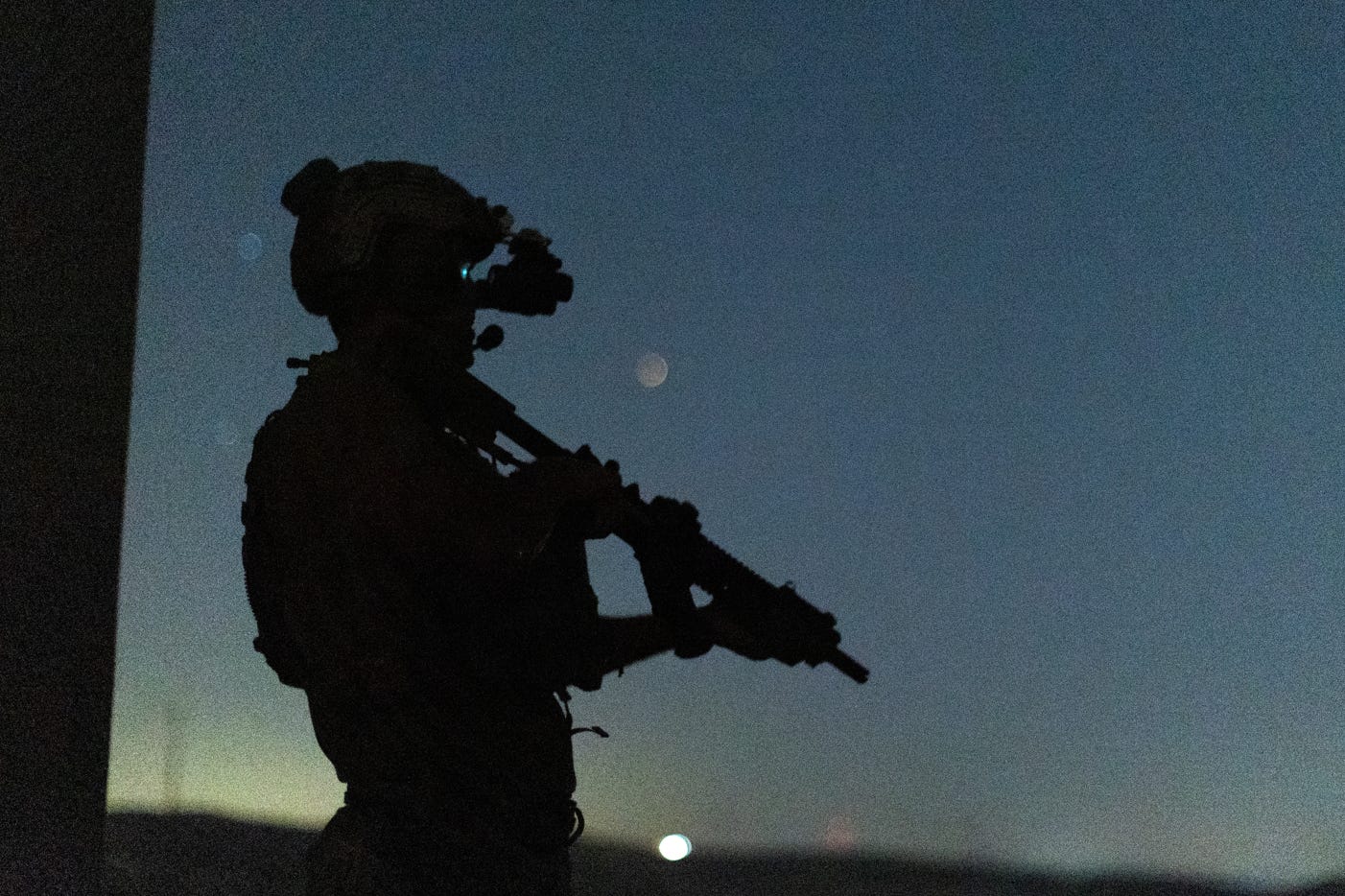
US Air National Guard photo by Senior Airman Bill Guilliam
From warfighting to paperwork, US Special Operations Forces are interested in getting in on AI to simplify the work.
The goal for these elite forces, much like it is for regular people working office jobs and using AI to sort data or compile information, is to lessen the overall cognitive load, or mental effort, required for whatever a task may be. A lot of different types of artificial intelligence are being used, and it’s only growing.
AI has many potential applications for the US military, from autonomous features in uncrewed systems to AI-enabled targeting to enhanced situational awareness. The Department of Defense is eager to implement this technology to prepare US forces for a high-end technological conflict chock full of data and information.
Future wars could be fought in an environment where decision-making may need to happen quicker than humans alone can do, and that’s where military officials see the benefit of AI and human-machine teaming.
With AI, “we can reduce the cognitive burden of our operators,” Col. Rhea Pritchett, the program executive officer of SOF Digital Applications, said at SOF Week in Tampa, Florida, earlier this month. Instead of worrying about other things, operators “will take that precious time to critically think about actions that they need to take next to achieve the effect that they want.”

Air Force photo by Richard Gonzales
AI can sift through massive amounts of data quickly to focus on necessary information in a combat scenario and it can aid in mission planning and command and control functions.
This technology can also be used in battlespace awareness tools “to identify the position or location information of objects, people, and terrain — enhancing operator analysis and decision-making capabilities,” Pritchett added over email.
These kinds of capabilities are already being developed.
But there are other functions of AI in SOF, and they aren’t unlike the way civilians use ChatGPT or other AI-driven platforms for their jobs and personal lives.
That includes paperwork: situational reports, concepts for operations, and forecasting supplies. The tasks that might take an operator a long time to complete and draw their focus away from other aspects of the job.
Back-end work, as Ben Van Roo, CEO and cofounder of Legion Intelligence Inc, put it, could also be aided by artificial intelligence. Such work could include better search functions for analyzing DoD doctrine and understanding elements of specific locations, commands, or job positions.

U.S. Army Photo by Sgt. Patrik Orcutt
One prime example could be using AI tools when entering a new position to quickly get up to speed on the work. When military personnel receive orders for their next job, it can be a lot of work to learn not only the ins and outs of the position itself but also the larger bureaucracy, geographic information, and historical and political context, what their predecessor did, types of weapons and capabilities present, and so on.
That is a bit different than how AI in the military is regularly perceived. “People tend to jump to Terminator,” Van Roo said. “Actually, the great majority of it right now is just, people can barely even do their jobs with all these archaic systems.”
While there are many possibilities for AI technology in warfighting systems, such as the AI-enabled drones that are demonstrating just how effective this technology can make an uncrewed fighting platform or the AI algorithms being taught to fly fighter jets, there’s much that can be done to improve the mundane.
AI has the potential to address some of the headaches and help reform some older technological policies, effectively streamlining the processes. It might even have an application in assessing details for contracts and programs.
“The potential to relieve the cognitive load is extremely high,” Van Roo said.

US Army Photo by 1st Lt. Allan Cogan
AI could provide assistance with what some operators might consider the more time-consuming tasks of their job and take a form similar to an AI assistant designed to take notes, gather and review key client data, transcribe meetings, and outline important takeaways.
AI systems are already being used in SOF, Pritchett told BI, including generative machine learning, large language models, natural language processing, and computer vision.
The rise of AI in militaries has been met with skepticism and ethical concerns from experts and officials about its implementation, especially in combat scenarios.
The Pentagon has maintained that its policy on AI will keep a human in the loop for decision-making, though some observers have argued that doing so might not always be possible in a high-speed, data-driven future fight. Some have also cautioned that the technology may end up developing at a much quicker pace than Washington and the Pentagon can regulate it.
The post US special ops forces want in on AI to cut ‘cognitive load’ and make operator jobs easier appeared first on Business Insider.




